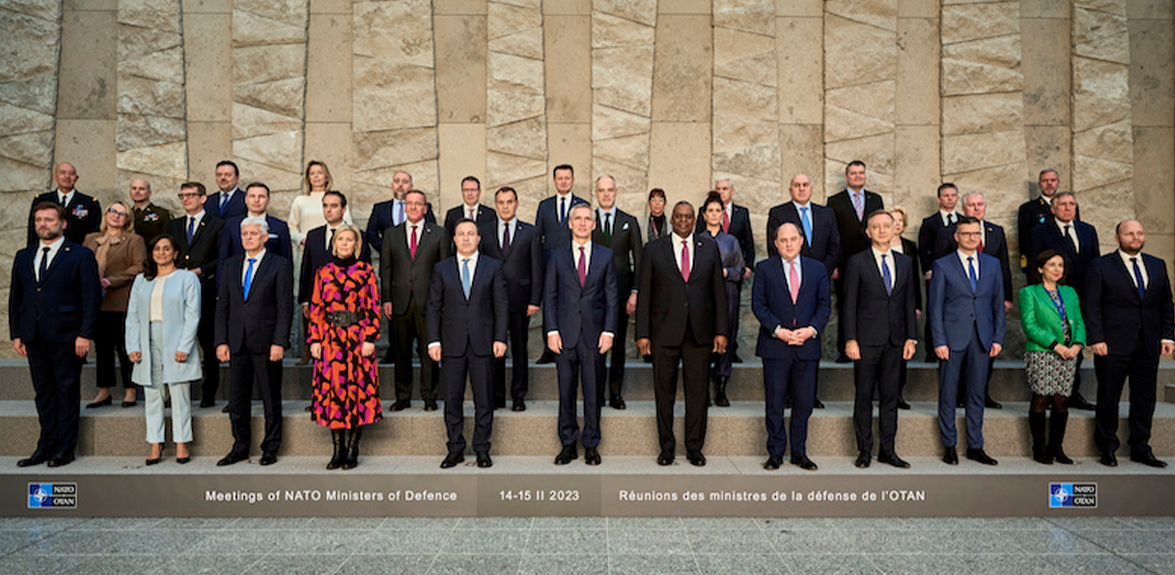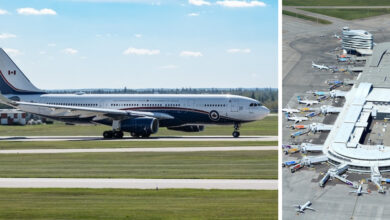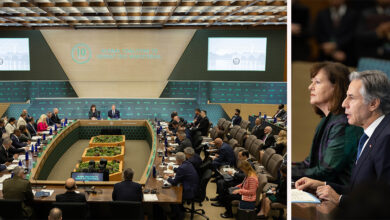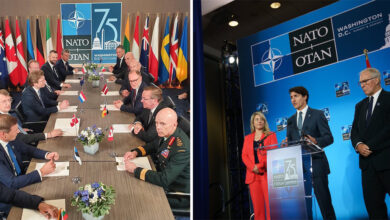Today’s News
Minister of Defence attends NATO Meeting of the Defence Ministers Meeting
NATO Defence Ministers Meeting February 24, 2023.
Reaffirming commitments to both NATO and the ongoing war in Ukraine were the top priorities for Defence Minister Anita Anand during this year’s NATO Meeting of the Defence Ministers Meeting.
While in Brussels, Belgium, not only did Minister Anand take part in the North Atlantic Treaty Organization’s (NATO) Meeting of the Defence Ministers Meeting but also participated in the ninth U.S.-led Ukraine Defense Contact Group (UDCG).
“During our productive meetings over the past two days, I reaffirmed Canada’s unwavering support to Ukraine and our commitment to continue providing meaningful contributions to the Alliance. We will continue to work closely with our NATO Allies to strengthen NATO’s deterrence and defence posture, which is more important than ever. Our collective resolve has had an important impact on Ukraine’s ability to defend its independence, sovereignty, and territorial integrity, and we will continue to demonstrate our strength and resilience in defence of the rules-based international order,” said Minister Anand.

The UDCG
Created in April 2022, United States Secretary of Defense Lloyd J. Austin III hosted the UDCG meeting.
According to the Department of National Defence, the meeting was “an important opportunity for Allies and partners to coordinate military assistance to address Ukraine’s current and longer-term defence priorities.”
During this meeting, Minister Anand reaffirmed Canada’s commitment to supporting Ukraine. She also announced that the long-anticipated four Leopard 2 main battle tanks have now all been delivered to Europe. In addition, a CAF team is training Ukrainians in Poland on the tanks.
The UDCG was created by the United States to specifically meet the needs of the Ukrainian people in the wake of Russia’s attack. The group allows Allies to meet and discuss equipment needs, consult on and coordinate assistance to Ukraine and discuss ways forward to build the capabilities of the Ukrainian Armed Forces.
The UDCG meets on a monthly basis at the ministerial level, bringing together dozens of countries.
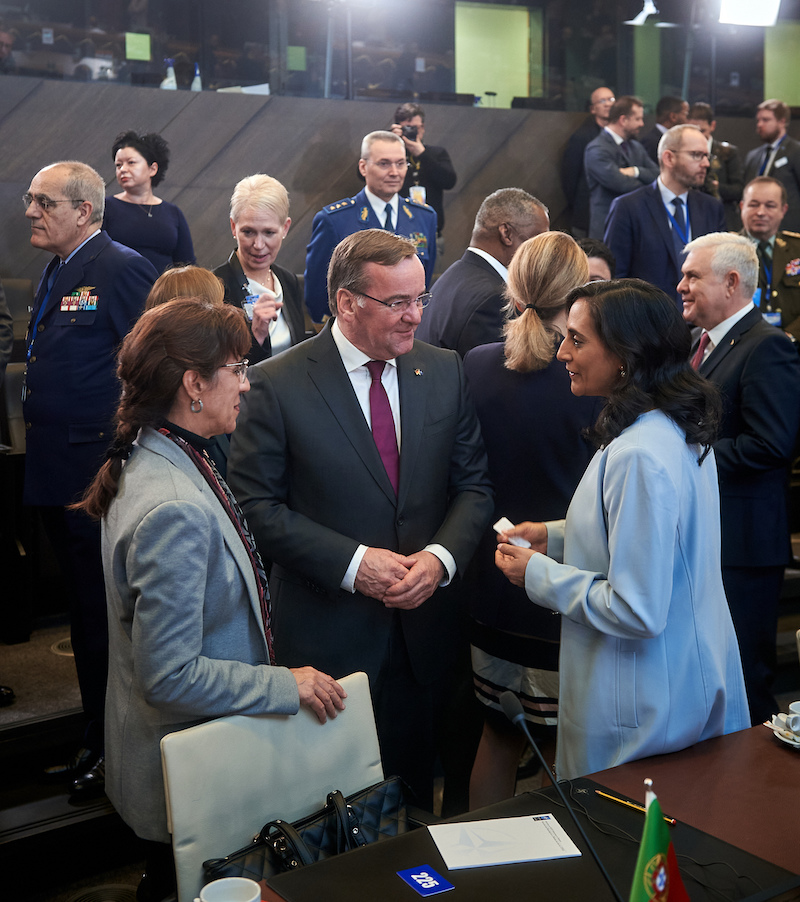
Meeting with Multiple National Leaders
Aside from the UDCG, Minister Anand and other defence ministers met for the NATO DMM from Feb. 14-15.
“In light of the rapidly evolving security environment, the Alliance’s deterrence and defence posture and its longer-term adaptation was at the centre of discussions. Ministers underlined the importance of addressing current and future security challenges and their implications for transatlantic security,” read a press release from DND.
The meetings allowed Anand a chance to reiterate Canada’s commitment to NATO and Europe. Canada contributes to both these entities in a number of ways, most notably through the leadership of the enhanced Forward Presence (eFP) Battle Group in Latvia. Canada is also working with Latvia and other countries to implement the Canada-Latvia Joint Declaration signed at the 2022 Madrid Summit.
To that effect, Minister Anand held a number of bilateral and multilateral meetings, including meetings with:
- Latvia’s Minister of Defence, Ināra Mūrniece;
- Spain’s Minister of Defence, Margarita Robles;
- representatives from Allied countries contributing to the eFP Battle Group; and
- representatives from the United Kingdom and Germany, which furthered the discussion on eFP battle groups in the Baltics.
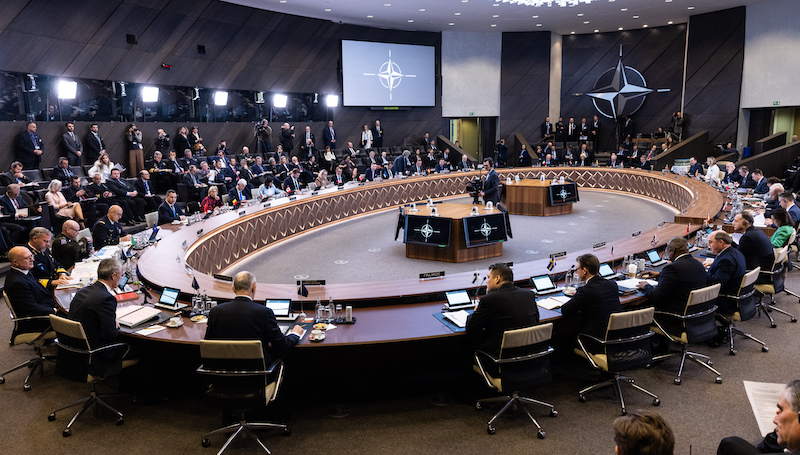
Joint Statement Released
It was on this occasion that the ministers of eFP host nations signed a joint statement. These countries included the United Kingdom, Canada, Germany, Estonia, Lithuania, and Latvia. The statement reaffirmed their commitment to protecting our populations.
“We – Estonia, Latvia, Lithuania, the United Kingdom, Canada, and Germany, with full respect to the different approaches towards the tailored presence in the Baltic States, will coordinate efforts with each other and NATO in order to achieve the most effective and credible deterrence and defence posture in the region,” read the statement.
According to the statement, the countries have promised to:
- Strengthen their cooperation by integrating the eFP into further implementation of the Concept for Deterrence and Defence of the Euro-Atlantic area;
- Work on pre-positioning equation and ammunition in the Baltic States; enhancing collective defence;
- Seek ways to share best practices; and
coordinate of our Strategic Communications.
“Our commitment to Article 5 is resolute and firm. We, as Defence Ministers of Estonia, Latvia, Lithuania, the United Kingdom, Canada, and Germany, are committed to the implementation of the 2022 Madrid Summit decisions and will continue to work together to strengthen NATO’s Posture in the Region,” continued the statement.
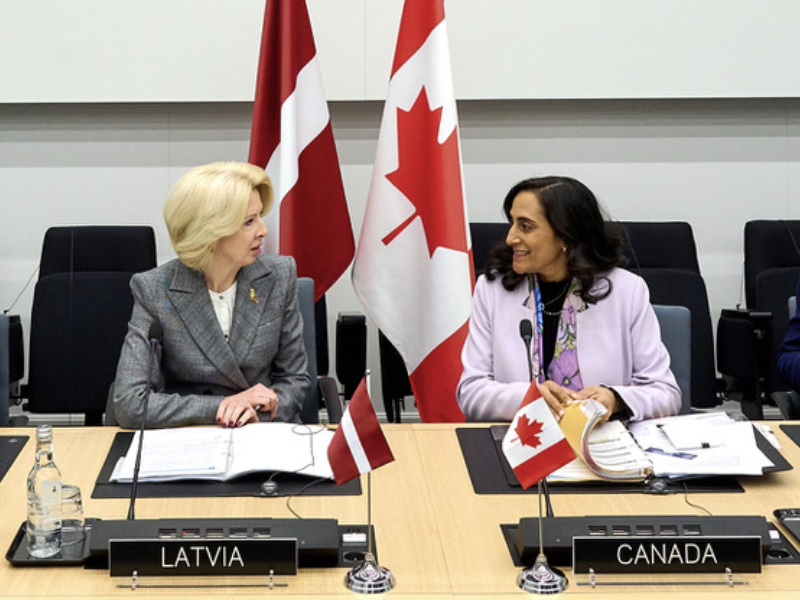
Supporting Latvia
Canada also furthered their commitment to Latvia on other fronts, including cyberspace. Canada, at the request of Latvia, has a Cyber Task Force in Riga. The task force’s goal is to connect a bilateral defensive cyber threat-hunting operation. Cyber security experts from the Department of National Defence, the Canadian Armed Forces, and the Communications Security Establishment all contributed to the task force.
“These defensive cyber operations in support of our NATO Allies have allowed Canada to reinforce the work of NATO Eastern Flank Allies to defend and deter against Russian aggression in the region,” stated DND.
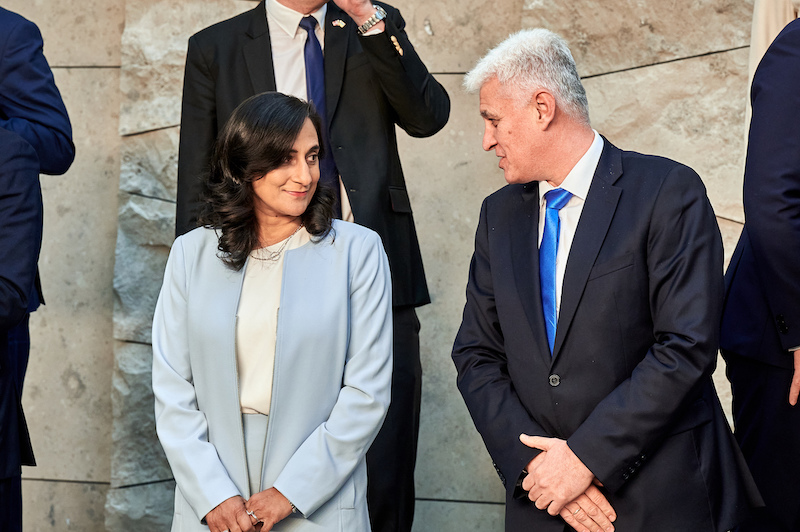
Signing Ceremonies
During the DMM, Minister Anand also participated in signing ceremonies for three NATO high-visibility projects.
These projects include:
- Memorandum of Understanding for the Multinational Ammunition Warehousing Initiative;
- Letter of Intent for the Alliance Future Surveillance and Control Fast Track solution and a
- Letter of Intent for the Alliance Persistent Surveillance from Space project.
The Memorandum of Understanding for the Multinational Ammunition Warehousing Initiative centres around stockpiling and storage options for NATO operations.
The Letter of Intent for the Alliance Future Surveillance and Control Fast Track solution will provide NATO with an updated airborne early warning and control capability after the current system is retired in 2035.
The Letter of Intent for the Alliance Persistent Surveillance from Space project integrates and disseminates Allied intelligence, surveillance and reconnaissance data from space.


